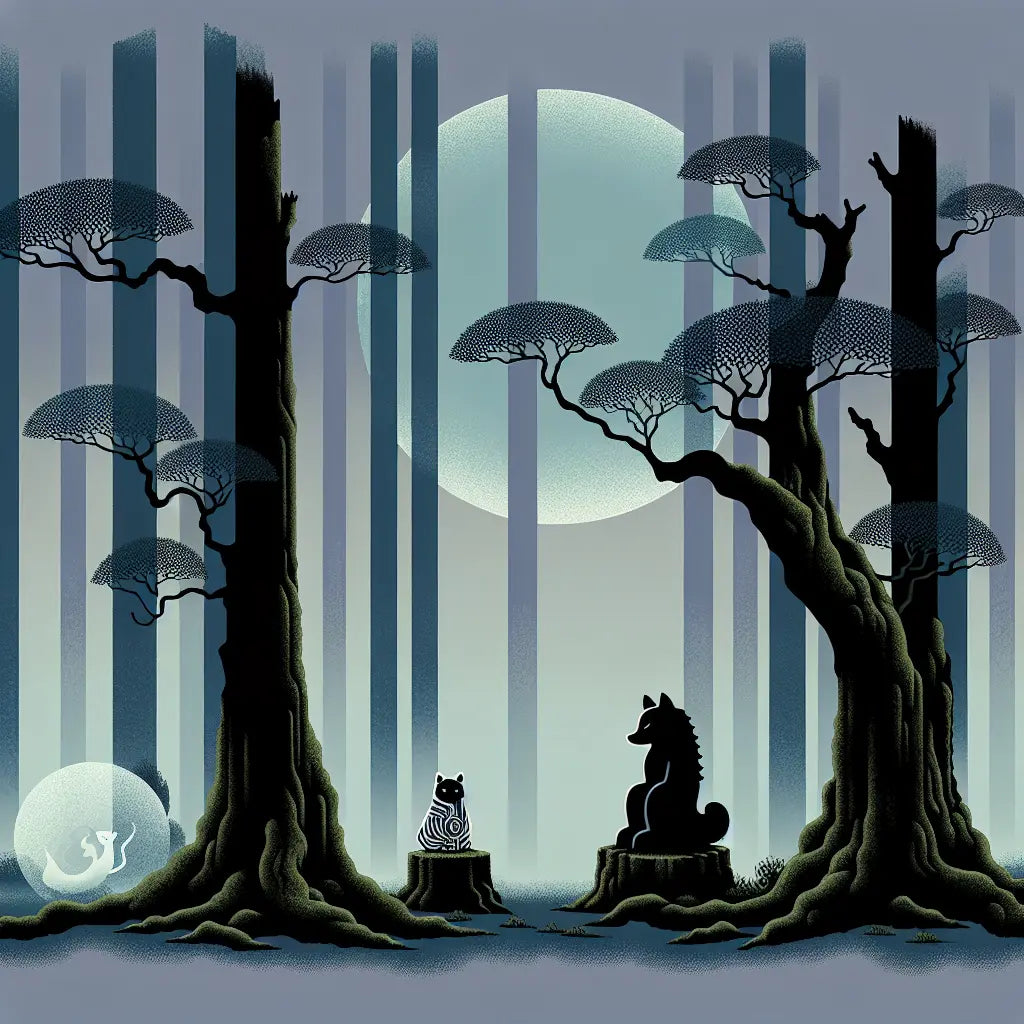
Is It Yokai or Yo Kai? Unraveling the Romanization of Japan’s Mystical Spirits
Have you ever encountered the eerie creatures of Japanese folklore and wondered: is it yokai, yo kai, or maybe even youkai? That small difference in spelling can change everything when talking about these captivating spirits and monsters. But dont worryits simpler than you might think. Let me explain.
What Exactly Are Yokai? A Quick Look into Traditional Culture
Before we sort out the spelling, its worth taking a moment to understand what yokai really are. These supernatural beings are a big part of Japans folklore, ranging from playful tricksters to terrifying monsters. Imagine a world where forests whisper secrets and rivers hide ancient creaturesa place where yokai freely appear in myths, art, and stories.
From the mischievous tanuki, or raccoon dogs, to the strange kappa lurking in ponds, yokai represent the mysterious parts of nature and our fears. Theyre more than ghost talesthey act as mirrors reflecting the balance between the visible and invisible worlds.
Romanization Reality Check: Why Yokai Is the Most Common Choice
Now to the heart of the matter: why does yokai appear more often than yo kai or youkai in English? The answer lies in how Japanese sounds are written using the Roman alphabeta process called romanization.
In Japanese, the word is spelled 476 and pronounced with a slightly long o sound, closer to y4dkai. Some people use a macron (a line above the o) and write it as y4dkai to show this lengthening. However, macrons arent commonly used in casual English writing, so yokai became the standard. Its easy to say, looks clean, and is widely accepted outside of Japan.
The two-word form, yo kai, separates what Japanese treats as one word, so its less popular. Meanwhile, youkai shows up sometimes because some romanization styles spell the long o sound as ou. But most scholars and fans prefer yokai because its clearer and easier to recognize.
In short, yokai is the best way to connect Japanese traditional culture with global interest while keeping it authentic.
Why Correct Spelling Matters: Respecting Cultural Heritage
You might think spelling doesnt really matter when talking about legends. But it does. Think about it like following a favorite recipechanging one key ingredient changes the whole flavor. Using yokai shows respect and accuracy when discussing Japanese myths. It also helps avoid confusion, especially in academic works or when exploring manga, anime, and other cultural forms.
Yokai are deeply woven into modern Japanese culture, appearing in everything from classic ukiyo-e prints to collectibles. For fans, knowing how to say and spell yokai correctly opens the door to a richer understanding and connection.
What Yokai Mean to Collectors and Curious Minds
Heres where the story gets really exciting. Interest in yokai isnt just for scholars or language loversit spills over into fashion, art, and everyday objects. Imagine wearing a pin that captures some of that mysterious energy. Whether its a playful tengu mask or a mythical fox spirit, these items tell stories and invite conversations.
While yokai cover a wide range of creatures, another mythical figure captures imaginations: the Japanese dragon. Though not classified as yokai, these dragons play a huge role in folklore and symbolism.

Signum offers a beautiful way to celebrate this connection through the Japanese Dragon Enamel Pin 6 Mythical Ry6b Design. This pin honors the majestic Ry6b, a creature symbolizing strength and mystery, much like the yokai that roam Japans folklore.
The Japanese Dragon: A Symbol Beyond Yokai
Japanese dragons, called Ry6b, hold a special place in traditional culture. Unlike Western dragons known for breathing fire, Japanese dragons are usually water godsprotectors linked to rain and fertility. They move through clouds and rivers, embodying power and wisdom.
Though different from yokai, these dragons share the same aura of ancient myth. They are pillars of stories passed down through generations, showing how people have long sought meaning in the mysterious and supernatural.
If you love the mystical vibe of yokai, the Japanese Dragon pin connects you to a wider world of Japans spiritual legendsa quiet nod to the unseen forces shaping culture and belief.
Wrapping Up: Embrace Yokai with Confidence
So, next time you write or talk about these fascinating spirits, you can do so with clarity and respect. yokai is the best word to anchor your understanding of these mysterious beings.
Whether youre diving into manga, exploring Japans rich traditions, or admiring a unique collectible, remembering this little detail makes the experience much richer. After all, language is the first step toward truly understanding another world.
And if you want to carry a symbol of that world with you, the Japanese Dragon Enamel Pin 6 Mythical Ry6b Design offers a small but powerful token of that connection.
In the magical realm of yokai, every detailfrom the way you say it to the art you treasurematter. So go ahead, embrace the mystery, and let these timeless spirits ignite your imagination.
What is the correct spelling of the Japanese supernatural creatures?
The most accepted spelling is "yokai," which accurately represents the Japanese word 妖怪 and is widely used in English due to its clarity and simplicity.
Why isnt the term spelled as "yo kai" or "youkai" more often?
"Yo kai" separates one Japanese word into two, which is less accurate, while "youkai" is a less common romanization style representing the long 'o' sound. "Yokai" is simpler and more recognized globally.
How does the Japanese Dragon Enamel Pin relate to yokai culture?
While Japanese dragons (Ry6b) are not classified as yokai, they embody similar mystical traditions and symbolism. Our enamel pin celebrates this connection, symbolizing strength and mystery found in Japanese folklore.

